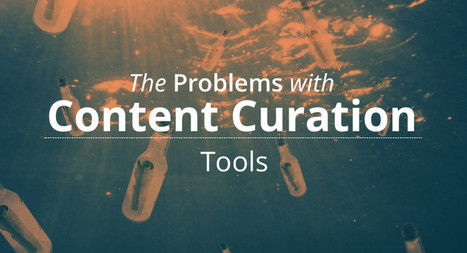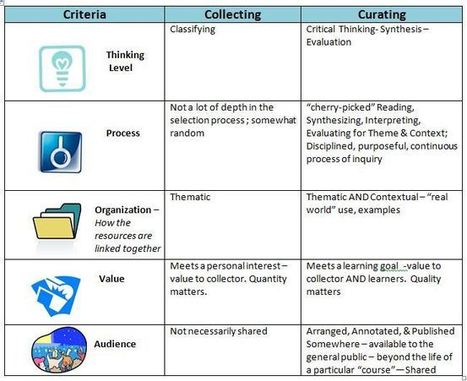"I still have to do all the searching for new and good content sources and filtering the content I get. Separating the crap from the awesome. All by myself. This is hard work and very time consuming"

|
Scooped by Robin Good |
If you are into content curation for the long run, do not make this mistake.
Nuno Figueroa, who shared, in an interesting and informative article on Business2Community, his deep frustration with content curation tools and with the incredible amount of work one has to do to find, vet, add value and share truly valuable content online, wrote:
"I still have to do all the searching for new and good content sources and filtering the content I get. Separating the crap from the awesome. All by myself. This is hard work and very time consuming".
But wait a minute! What you describe here is the key, absolute value a curator can provide: his time.
The more we try to bypass this in favour of tools that can automate this time-consuming and difficult work the more we give up the opportunity to truly add unique value to your curated content.
Not to say that a good curator should not have a great toolset to help him out.
But remember: There will never be any tool that can do better search than you (unless you know nothing about what you are curating). No tool that can tell whether an article is a retake of another one or a true original, or that can evaluate the insight and ideas a new perspective from a new author unknown author can bring.
This in my opinion is what a content curator does.
Would a painter or a sculptor want to automate or speed up parts of his artistic creation process?
Unless the artist goal was focused exclusively on quantity and he had no enjoyment in the creation process there would be no need or desire to speed up or automate the creation process as this is what the artist, by definition, has chosen to do.
Similarly the content curator is socially useful and provides value to other people by utilising his many skills and experiences to gather, find, collect, organise, add value and present information artifacts covering a specific topic, interest, issue or event. His realisation is in doing such things not in bypassing or speeding up these steps.
This is one of the consequences of selling content curation as a content marketing "device" that can save time and make you look good.
If you are after *volume* and *eyeballs* you will publish funny cats.
But volume and traffic will not command much more than increasingly slimming advertising budgets. And for how long more?
What we should be all after his instead learning and refining those curatorial skills that can help us provide the only thing our readers care about: having truly trusted guides that provide high-value information services for the specific interests they have.
Yes, a content curator will also use, test and experiment with many different tools to aid its ability to search, find, collect and organise information, but definitely not in order to save time but in order to enhance and expand his abilities to provide greater value through those activities.
What do you think?



 Your new post is loading...
Your new post is loading...
















Robin Good wisely notes that the added value a curator brings to the table is his/her time, the judgment of whether the particular article(s) are of value and what items to highlight.